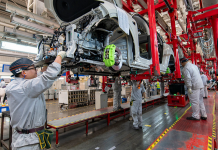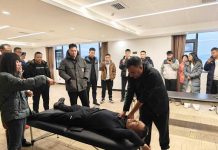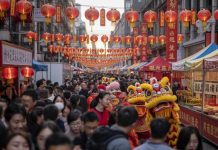BEIJING: On January 27, in a live broadcast to the whole nation, Indonesian President Joko Widodo received his second dose of the novel coronavirus disease (COVID-19) vaccine developed by China’s biopharmaceutical company Sinovac Biotech.
Recently, Turkish President Recep Tayyip Erdogan, Seychelles President Wavel Ramkalawan and many other state leaders have also publicly received vaccines developed by Chinese companies, showing their confidence in the safety and efficacy of the Chinese products.
As COVID-19 continues to spread, people place high hopes on vaccines to rein in the pandemic. As of February 2, 13 countries have approved emergency use of Chinese vaccines, one developed by Sinovac Biotech and the other by Sinopharm’s bioscience subsidiary China National Biotec Group, and over 50 countries have asked to import from China.
Some countries have already received vaccines produced by Chinese companies. In Serbia, 1 million doses of Sinopharm’s product arrived at Belgrade and were welcomed by President Aleksandar Vucic at the airport on January 16. With the Sinovac vaccine CoronaVac, Brazil launched an inoculation program in about 6,000 villages, covering more than 400,000 residents. Turkey also started a mass vaccination program with CoronaVac.
Compared to other vaccines, the research and development of COVID-19 vaccines has been rapid. On April 12, 2020, vaccines developed by the Wuhan Institute of Biological Products under Sinopharm obtained the world’s first clinical trial approval and Phase I/II clinical trials were launched in Wuzhi County, Henan Province in central China. On June 23, Sinopharm launched the world’s first Phase III clinical trial of the COVID-19 inactivated vaccine in the United Arab Emirates (UAE).
The UAE also became the first country to approve emergency use of Chinese vaccines on September 14 of last year.
“Sinopharm started voluntary vaccinations among researchers at the end of March 2020. I was administered the first dose on March 23,” Yang Xiaoming, Chairman of Sinopharm’s China National Biotech Group, said. “Antibodies were detected in my blood in the second week following the injection, and high antibody levels were detected about two weeks after the second inoculation.”
Chinese vaccines can be kept at temperatures between 2 and 8 degrees Celsius, which makes them easier to store and transport, while vaccines made by Pfizer have to be stored and shipped at minus 70 degrees Celsius, which requires costly cold chain delivery facilities.
The efficacy of Chinese vaccines is also encouraging. Beijing has approved their emergency use for high-risk groups since last July. Among those who were vaccinated, more than 60,000 had traveled abroad to areas with severe epidemic situation, and no serious infections had been reported, Zheng Zhongwei, an official with the National Health Commission heading China’s COVID-19 vaccine development team, said at a press conference on December 19, 2020.
CoronaVac has an efficacy rate of 91.25 percent in clinical trials in Turkey and 65.3 percent in Indonesia.
The efficacy rate in Brazil varies according to different standards. According to reports, infected cases in Brazil are divided into six categories: asymptomatic, very mild symptoms, mild symptoms, level 1 moderate symptoms, level 2 moderate symptoms, and severe symptoms. Clinical studies in the country suggested the vaccine had a general efficacy rate of 50.38 percent if the last five kinds of cases were included, but it reached 78 percent effective if the “very mild cases” are ignored, and 100 percent effective in preventing severe cases.
– The Daily Mail-Beijing Review News exchange item






